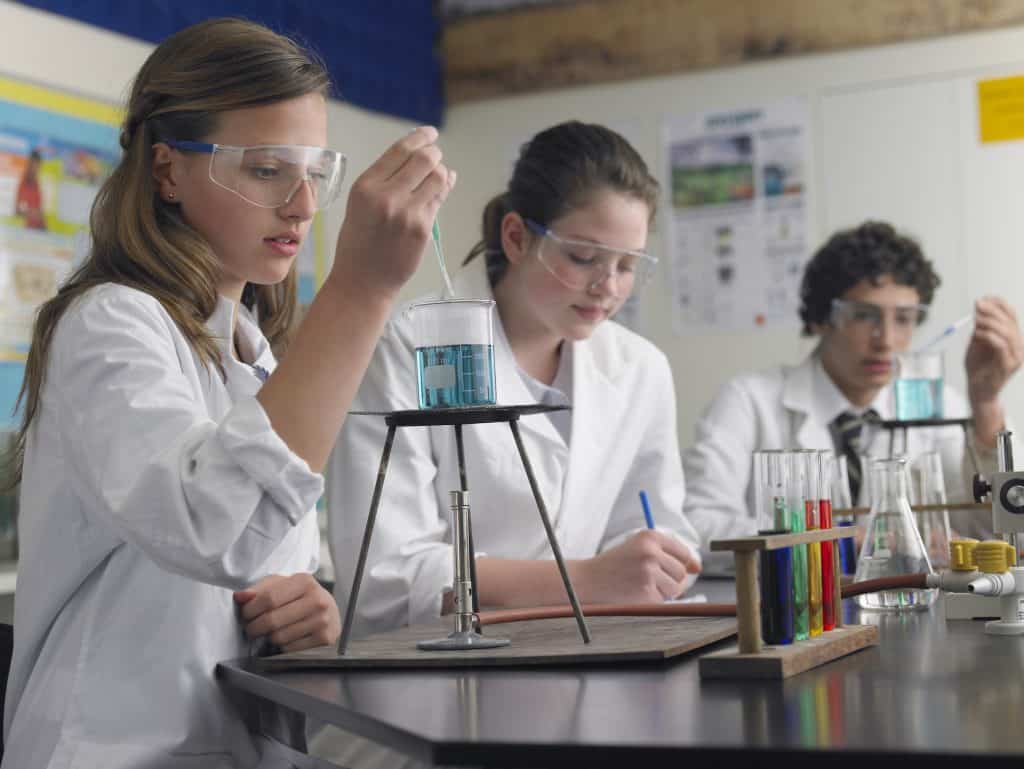
Not long after the White House declared the pandemic a national emergency in March, hope could be found in laboratories all over the country.
Operation Warp Speed brought government agencies and the nation’s top pharmaceutical companies together and provided billions of dollars for a massive push to develop a COVID-19 vaccine by January of 2021.
As the nation struggles against a virus that has killed almost 230,000 Americans in less than a year—almost four times the toll of the Vietnam War—our country will turn to the men and women in lab coats for answers. We need science to help save us.
That is why we must maintain a strong focus on science education even during this current school year, when ongoing disruptions will certainly make instructional time our most precious resource. As education leaders in every state and district plan their curriculum, science should join math and English as a primary focus. Deprioritizing science education in American schools this year would be a mistake.
To leave science education out of the national conversation is to risk losing an entire generation of students with talent and ability in STEM-related fields. Scientific knowledge and practices build on foundations that begin in early elementary school; students who miss those introductions or have their development disrupted may never experience the spark of scientific investigation that inspires STEM careers. In an economy increasingly driven by technology, that loss would be tragic. Now more than ever, science education is vital, and we should treat it as such.
‘A Gap in Support’
Elizabeth Allan and Kevin Anderson articulated the argument well in a piece for the National Science Teachers Association (NSTA) in May.
Many schools are using federal relief money to purchase online curricula that are focused on math and English. Science should join that list, particularly in lower grades, where, Allan and Anderson wrote, “students often form their science or STEM identity.” Science teachers need proper supports to educate their students in the new environment.
“Without this learning, it will be difficult to maintain student growth in critical areas of science and STEM education,” Allan and Anderson wrote. “Future-readiness requires students who can connect learning across disciplines to understand and solve real-world problems. Traditional methods of instruction cannot be readily applied to new circumstances to accomplish this essential goal; innovation is essential.”
Perhaps more alarming is that states that have invested in the multi-year process of aligning their standards with Next Generation Science Standards could see that work halted, causing long-term, systemic shortfalls in science education.
Simply put, if states don’t follow through on their efforts to implement Next Generation Science Standards, the efforts to date may be wasted, and state standards may become outdated. Students will pay the price for that mistake.
The Role of Assessment
At New Meridian, we have been thinking deeply about science education and the role that assessment plays. The result of that thinking is the New Meridian Science Exchange, a system designed to give states an affordable and flexible way to build the highest quality assessment tools for science education.
States can contribute Science assessment content to the Exchange and draw from other states’ contributions as needed. The team at New Meridian provides Science assessment expertise to help states align their testing programs with next generation standards.
Yet our belief in science education goes beyond helping states build a better assessment. Every decision we made in creating the Science Exchange was rooted in the belief that science should be fundamental to an education in today’s America. Yes, it is important to college and career readiness, and certainly critical in its application, as shown in the national push to create a COVID-19 vaccine.
Yet curiosity and discovery are also vital elements of the human condition, essential ingredients that make us who we are. In recent months, NASA has sent a rover to Mars carrying a small helicopter; SpaceX brought a private manned spacecraft safely back to Earth; and archeologists continued to gain insight into the mystery of Stonehenge. These achievements matter, and not just for economic or policy reasons.
They matter because understanding the world around us, and our role in shaping that world, matters. The better we understand that role, the more we understand about ourselves and our needs. The wonder of scientific discovery, whether in space, at sea or on terra firma here on Earth, drives our ability to sustain ourselves and our environment.
That wonder should start in the classroom.


